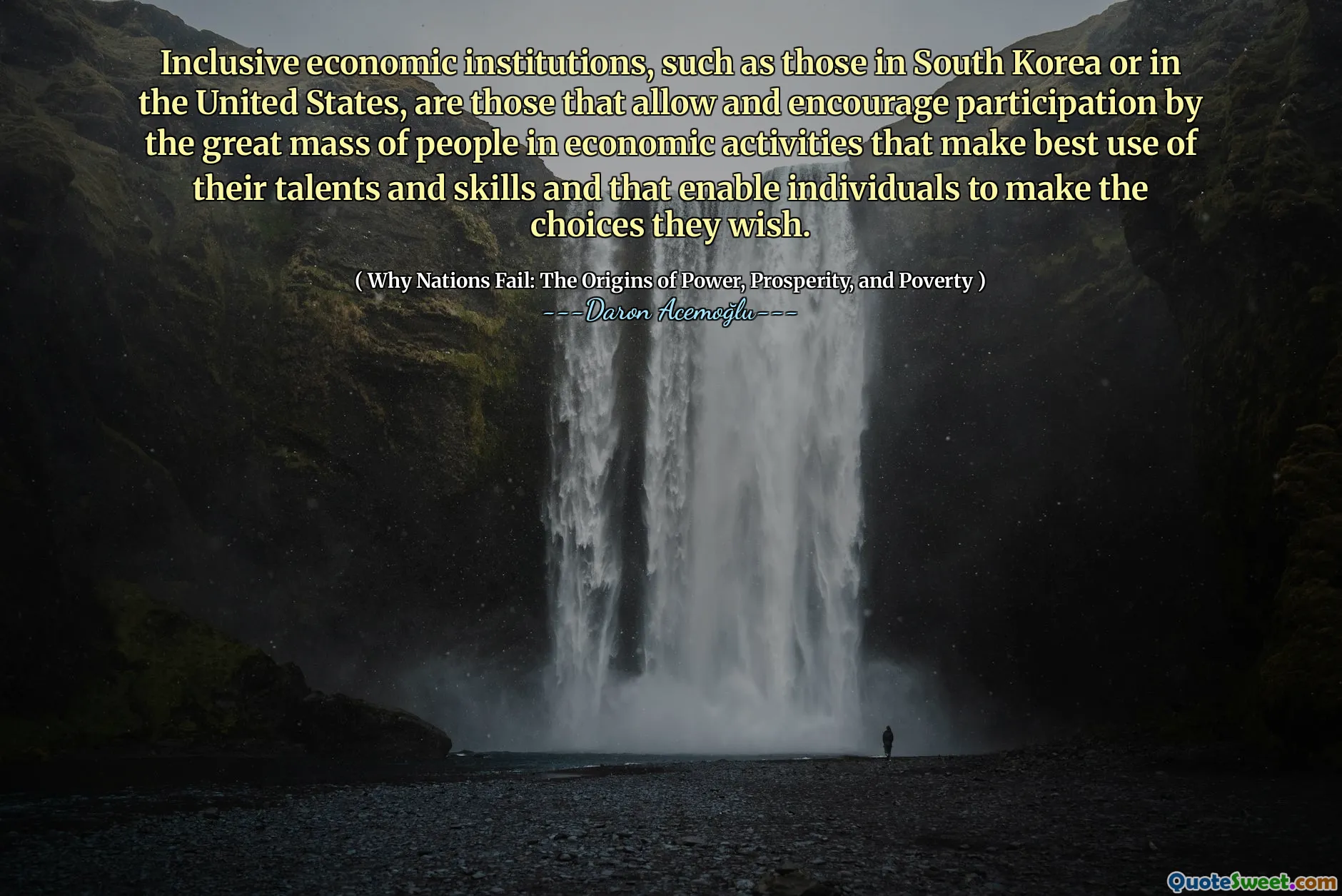
Inclusive economic institutions, such as those in South Korea or in the United States, are those that allow and encourage participation by the great mass of people in economic activities that make best use of their talents and skills and that enable individuals to make the choices they wish.
The quote highlights the fundamental role that inclusive economic institutions play in fostering national prosperity and individual well-being. These institutions create an environment where a broad segment of the population can actively participate in economic activities, leveraging their talents and skills to contribute meaningfully to societal development. This participatory approach not only promotes innovation and productivity but also ensures that economic benefits are widely shared, reducing disparities and fostering social stability.
From a macroeconomic perspective, countries like South Korea and the United States exemplify the positive impact of inclusive institutions. South Korea's rapid development post-1960s was largely driven by investments in education, technology, and inclusive policies that allowed its citizens to engage in high-skilled industries. Similarly, the U.S. has long benefited from a relatively open economy that encourages entrepreneurship and allows individuals to pursue diverse economic opportunities.
Such systems stand in contrast to extractive institutions, which concentrate power and resources in the hands of a select few, often leading to inequality and stagnation. The quote reminds us that economic success hinges not merely on the availability of resources but significantly on the design of institutions that empower and motivate the population.
Furthermore, the emphasis on personal choice underscores the importance of economic freedom. When individuals are free to choose their paths—whether in career, business, or consumption—they are more likely to innovate and adapt to changing circumstances. This creates a dynamic economy capable of sustained growth and resilience.
In conclusion, inclusive economic institutions serve as the backbone for sustainable development and social cohesion. They enable a nation’s citizens to realize their potential, contribute to shared prosperity, and foster an environment where economic activities thrive on participation, talent, and freedom. As such, building and maintaining such institutions should remain a priority for policymakers aiming to achieve long-term prosperity.







